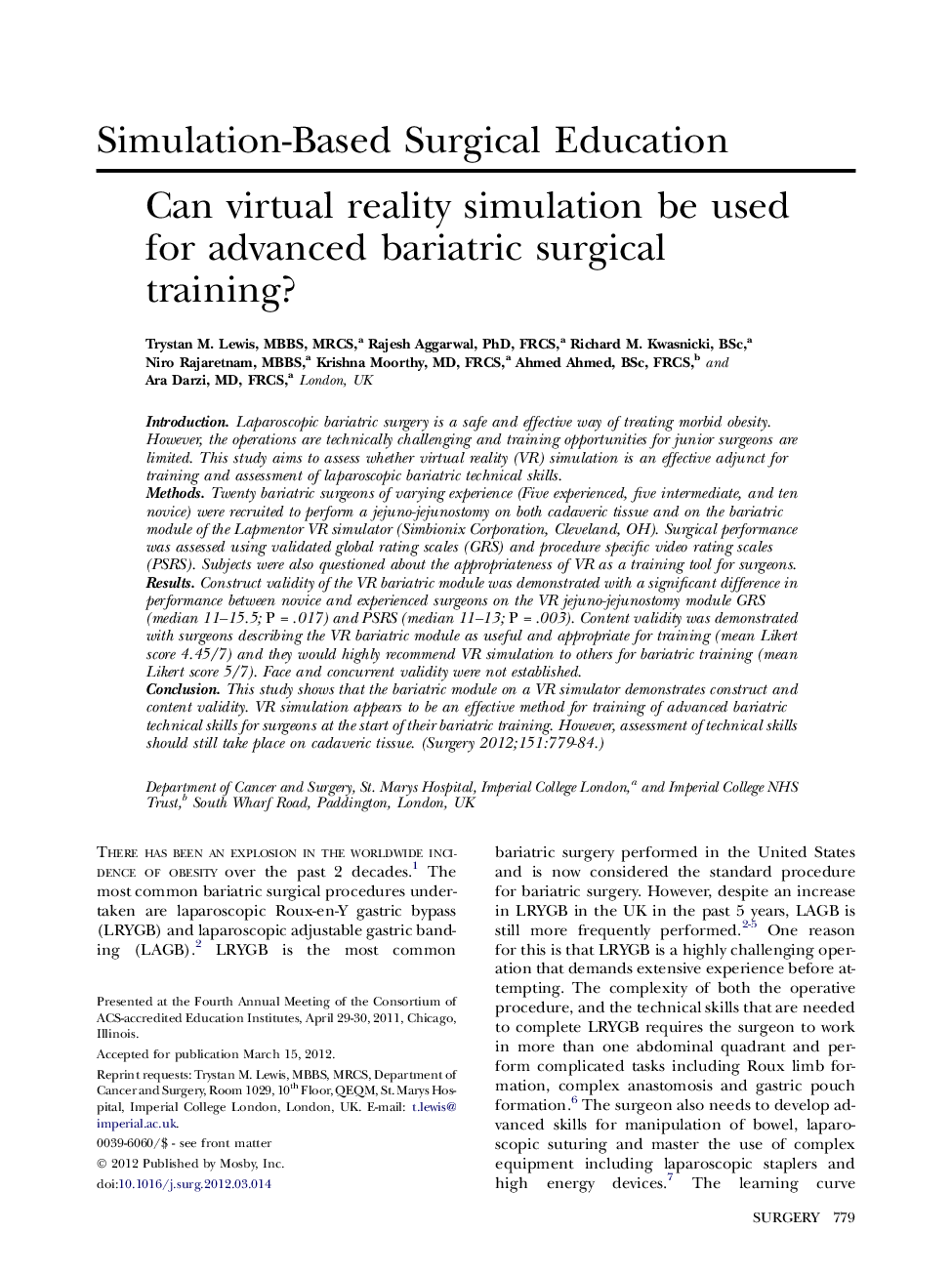| Article ID | Journal | Published Year | Pages | File Type |
|---|---|---|---|---|
| 4307792 | Surgery | 2012 | 6 Pages |
IntroductionLaparoscopic bariatric surgery is a safe and effective way of treating morbid obesity. However, the operations are technically challenging and training opportunities for junior surgeons are limited. This study aims to assess whether virtual reality (VR) simulation is an effective adjunct for training and assessment of laparoscopic bariatric technical skills.MethodsTwenty bariatric surgeons of varying experience (Five experienced, five intermediate, and ten novice) were recruited to perform a jejuno-jejunostomy on both cadaveric tissue and on the bariatric module of the Lapmentor VR simulator (Simbionix Corporation, Cleveland, OH). Surgical performance was assessed using validated global rating scales (GRS) and procedure specific video rating scales (PSRS). Subjects were also questioned about the appropriateness of VR as a training tool for surgeons.ResultsConstruct validity of the VR bariatric module was demonstrated with a significant difference in performance between novice and experienced surgeons on the VR jejuno-jejunostomy module GRS (median 11–15.5; P = .017) and PSRS (median 11–13; P = .003). Content validity was demonstrated with surgeons describing the VR bariatric module as useful and appropriate for training (mean Likert score 4.45/7) and they would highly recommend VR simulation to others for bariatric training (mean Likert score 5/7). Face and concurrent validity were not established.ConclusionThis study shows that the bariatric module on a VR simulator demonstrates construct and content validity. VR simulation appears to be an effective method for training of advanced bariatric technical skills for surgeons at the start of their bariatric training. However, assessment of technical skills should still take place on cadaveric tissue.
